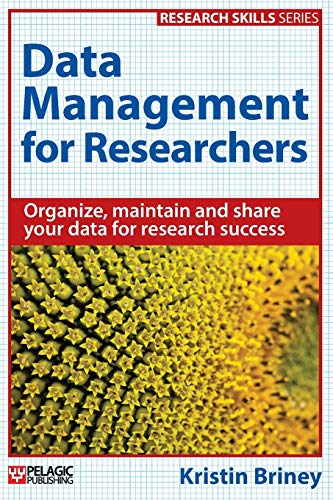

Most ebook files are in PDF format, so you can easily read them using various software such as Foxit Reader or directly on the Google Chrome browser.
Some ebook files are released by publishers in other formats such as .awz, .mobi, .epub, .fb2, etc. You may need to install specific software to read these formats on mobile/PC, such as Calibre.
Please read the tutorial at this link: https://ebookbell.com/faq
We offer FREE conversion to the popular formats you request; however, this may take some time. Therefore, right after payment, please email us, and we will try to provide the service as quickly as possible.
For some exceptional file formats or broken links (if any), please refrain from opening any disputes. Instead, email us first, and we will try to assist within a maximum of 6 hours.
EbookBell Team

4.7
26 reviewsA comprehensive guide to everything scientists need to know about data management, this book is essential for researchers who need to learn how to organize, document and take care of their own data.
Researchers in all disciplines are faced with the challenge of managing the growing amounts of digital data that are the foundation of their research. Kristin Briney offers practical advice and clearly explains policies and principles, in an accessible and in-depth text that will allow researchers to understand and achieve the goal of better research data management.
Data Management for Researchers includes sections on:
* The data problem – an introduction to the growing importance and challenges of using digital data in research. Covers both the inherent problems with managing digital information, as well as how the research landscape is changing to give more value to research datasets and code.
* The data lifecycle – a framework for data's place within the research process and how data's role is changing. Greater emphasis on data sharing and data reuse will not only change the way we conduct research but also how we manage research data.
* Planning for data management – covers the many aspects of data management and how to put them together in a data management plan. This section also includes sample data management plans.
* Documenting your data – an often overlooked part of the data management process, but one that is critical to good management; data without documentation are frequently unusable.
* Analyzing your data – covers managing information through the analysis process. This section starts by comparing the management of raw and analyzed data and then describes ways to make analysis easier, such as spreadsheet best practices. It also examines practices for research code, including version control systems.
* Managing secure and private data – many researchers are dealing with data that require extra security. This section outlines what data falls into this category and some of the policies that apply, before addressing the best practices for keeping data secure.
* Short-term storage – deals with the practical matters of storage and backup and covers the many options available. This section also goes through the best practices to insure that data are not lost.
* Preserving and archiving your data – digital data can have a long life if properly cared for. This section covers managing data in the long term including choosing good file formats and media, as well as determining who will manage the data in the long-term.
* Sharing/publishing your data – the reasons for and against data sharing and some of the practical aspects of sharing. This section covers intellectual property and licenses for datasets, before ending with the altmetrics that measure the impact of shared data.
* Collaborations and data – this section addresses how to make data sharing across research groups easier. It covers the practical aspects of systems for collaboration as well as policy concerns like ownership.
* Reusing data – as more data are shared, it becomes possible to use outside data in your research. This chapter discusses strategies for finding datasets and lays out how to cite data once you have found it.
This book is designed for active scientific researchers but it is useful for anyone who wants to get more from their data: academics, educators, professionals or anyone who teaches data management, sharing and preservation.